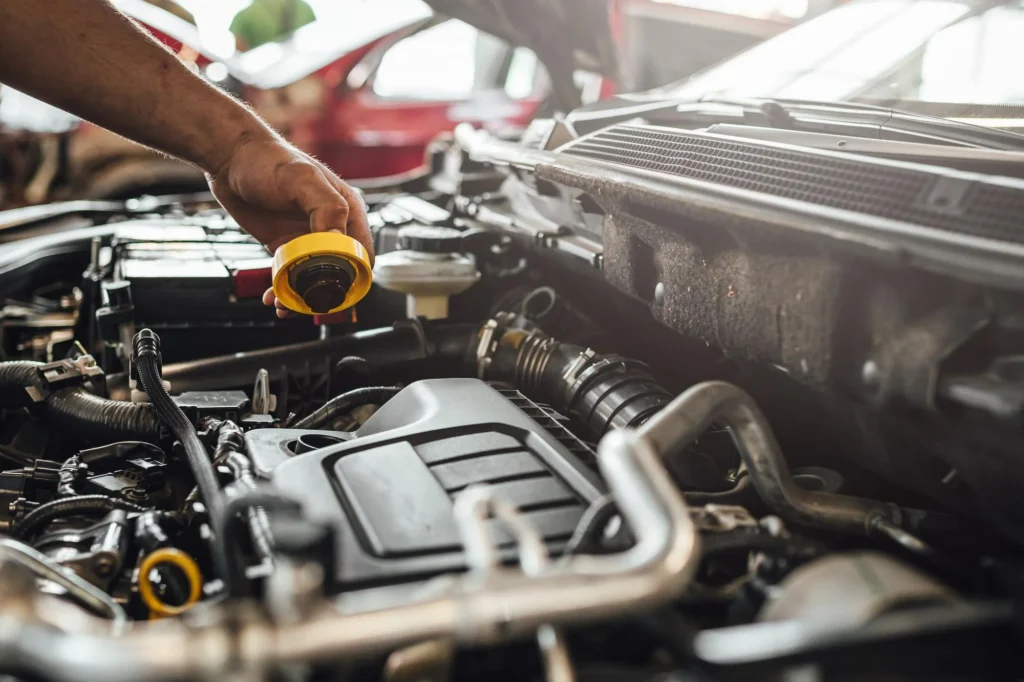The way we handle our cars will soon be very different than it is now. Rapid technological progress is changing the way we maintain our cars. You no longer have to manually change your oil and run diagnostics; the future of car maintenance is both exciting and revolutionary. Let’s talk about the most important things every driver should know about future car maintenance.
1. Prospects for future car maintenance
A. Why maintenance is important
Maintaining your car is important to its performance and longevity. Regular maintenance not only keeps your roads safe, but also prevents you from having to pay for expensive repairs down the road.
B. Changes in car maintenance
As technology advances, car maintenance has become more proactive and time-efficient. No more repairs required afterwards. Instead, predictive analytics and improved diagnostics are becoming increasingly important.
2. High-tech diagnostic tools
A. Predictive analytics
Predictive analytics uses advanced technology to look into the future and identify problems before they happen. Now cars can correctly guess when maintenance is needed by using machine learning algorithms to look at data from different sensors.
1. Sensor technology
Modern cars have many sensors that monitor everything from engine function to tire pressure. These sensors transmit data in real time so repairs can be made before damage occurs.
2. Machine learning algorithm
Machine learning algorithms look at large amounts of data to spot trends and outliers. By observing how things have behaved in the past, these programs can figure out when a part is likely to break so that it can be repaired before it does.
B. Remote supervision
Technicians can use remote monitoring tools to check the condition of a vehicle remotely. Cars can send diagnostic data to repair centers through connected technology, allowing them to quickly resolve issues and reduce downtime.
three. self-healing materials
A. Nanotechnology in cars: Nanotechnology is changing the way cars are maintained by creating materials that can repair themselves.
1. Self-healing coating
Self-healing surfaces have small capsules that burst when struck, allowing repair chemicals to repair scratches and dents on their own.
2. Self-healing tires
Self-healing tires contain a rubber material that seals punctures while the car is moving. This means that the tires need to be replaced less often.
B. Impact on maintenance costs
These improvements not only make vehicles last longer, but also reduce maintenance costs by reducing the frequency of repairs or replacements.
Four. Electric vehicle maintenance
A. Simplified parts of the machine
Electric vehicles (EVs) have simpler powertrains and fewer moving parts than standard combustion engines. This means they wear out more slowly.
B. Check the condition of the battery
Electric vehicle batteries are equipped with advanced battery management systems that closely monitor their health and performance. These systems optimize the charging process and extend the life of the battery.
5. Self-driving cars and maintenance
A. From car to cloud calling
Self-driving cars must be able to communicate with cloud-based systems at all times to obtain the latest information about the road and their own health.
B. AI-driven predictive maintenance
Artificial intelligence (AI) programs look at this data to determine what repairs are needed and when to ensure the system is operating optimally and safely.
six. Environmentally friendly maintenance methods
Parts recycled and reused
In the future, car maintenance will focus on environmental protection and reducing waste by recycling and reusing parts.
B. Environmentally friendly lubricants
Environmentally friendly lubricants reduce pollution and friction, in line with the industry’s move towards better practices.
seven. Cyber security in car repair
A. Data Protection: As cars become more connected, cybersecurity measures are needed to protect private information from hackers and cyber threats.
B. Integrate security software
Adding security software to your car’s systems can be a good way to prevent malware and unauthorized access, protecting the user’s privacy and the integrity of the vehicle.
8. Education and training of future maintenance technicians
By using these new technologies and staying current, their cars will remain in good condition for years to come.
FAQ stands for ‘Frequently Asked Questions’.
How will new car maintenance tools change insurance costs?
As cars become safer and more reliable, insurance companies may adjust their rates to reflect the reduced likelihood of accidents and breakdowns.
Will self-driving cars eliminate the need for humans to fix them?
Routine maintenance can be performed by self-driving cars, but complex repairs and diagnostics will still need to be supervised and performed by humans.
Are self-healing materials only suitable for luxury cars?
No, self-healing materials are slowly finding their way into more types of vehicles, which is good for more users.
How can improvements in car care help protect the environment?
Future vehicle maintenance technologies will help reduce the automotive industry’s carbon footprint by encouraging long-lasting, energy-saving and environmentally friendly habits.
What can drivers do to stay informed about new tools for maintaining their cars?
Drivers can stay up to date on the latest news and best practices by reading automotive news, attending industry events and talking to manufacturers and service providers.

